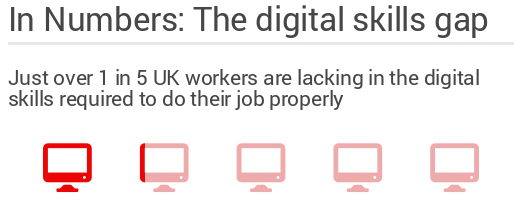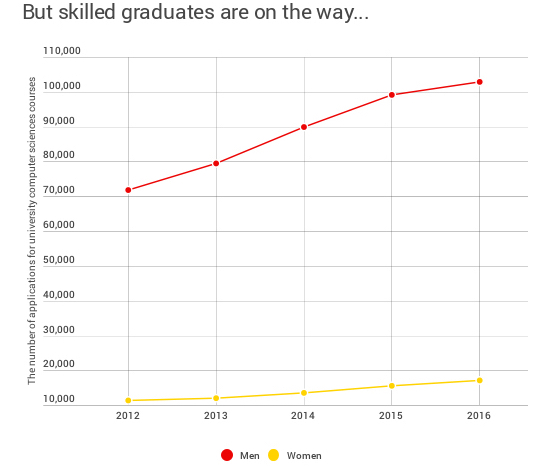Trend update: Don’t panic! Skilled digital workers are on the way
But it will not be plain sailing, says REBA's tame actuary, Matt Scott.

A digital revolution is well underway, but the existing workforce is not up to the challenge.
The media may be full of stories about Silicon Valley unicorns and tech entrepreneurs dressed in torn jeans and faded t-shirts, but that doesn’t reflect the truth on the ground for the majority of businesses up and down the UK.
A report from the UK Commission for Employment and Skills, Employer Skills Survey 2015, found that nearly a quarter (22%) of UK workers lack basic IT skills, while 22% are also lacking in more advanced computing skills.
The same report found that job applicants are also lacking in the required digital skills to properly fulfil the needs of a job, with 18% lacking in basic IT skills in 2015 compared to 15% in 2011.
For more advanced IT skills, 21% of applicants lacked the necessary expertise required for jobs applied for in 2015.
And this demand for digital skills is only expected to increase, with a 2014 report from tech company SAS and The Tech Partnership, Big Data Analytics: Assessment of Demand for Labour and Skills 2013 – 2020, estimating that the demand for big data specialists is expected to grow by as much as 160% between 2013 and 2020 – equivalent to an additional 346,000 jobs.
That’s quite a gap to plug if something doesn’t change, and many are calling for a reboot to the way digital skills are taught to students.
Sadly, this will not be just as simple as switching it off and on again.
Light at the end of the tunnel
But while policymakers in government may be scratching their heads as to the best way to boost the digital skills of the next generation, change is already on the way in the university sector.
Employers can be hopeful of an increased pipeline of digitally savvy workers, providing increased tuition fees as part of the government’s incoming Teaching Excellence Framework doesn’t put off potential students in years to come.
Data from The Universities and Colleges Admissions Services (UCAS) has revealed that the number of students applying to study computer science courses at university has increased by more than 44% since 2012.

This means that for 2016, more than 120,000 students from across the globe have so far applied to study computer science at UK universities for the next academic year, compared to just 83,320 applicants in 2012.
But while the future may be looking brighter, companies still have to deal with the here and now if they are to ensure their business remains successful.
Adequate training programmes may be the tried and tested way of upskilling your workforce, but this takes both time and money and there can be no guarantee that workers will stay post-completion of the course.
This means that many organisations are looking further afield to recruit their digital experts, bringing in expensive IT consultants or poaching talent from abroad to plug the gap until the UK has the required digital workforce to meet demand.
I wonder what the Brexiters will think of that in the run up to 23 June?
This article was written by Matt Scott, REBA's tame actuary.

He safeguards the reward community from hours of online research, his superstrength is delivering the numerical proof you need to make your reward business case.






